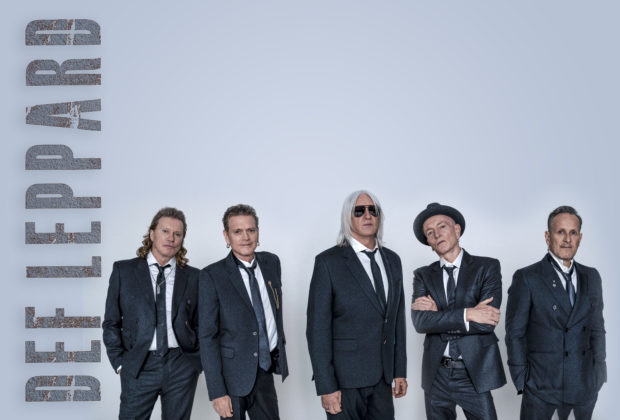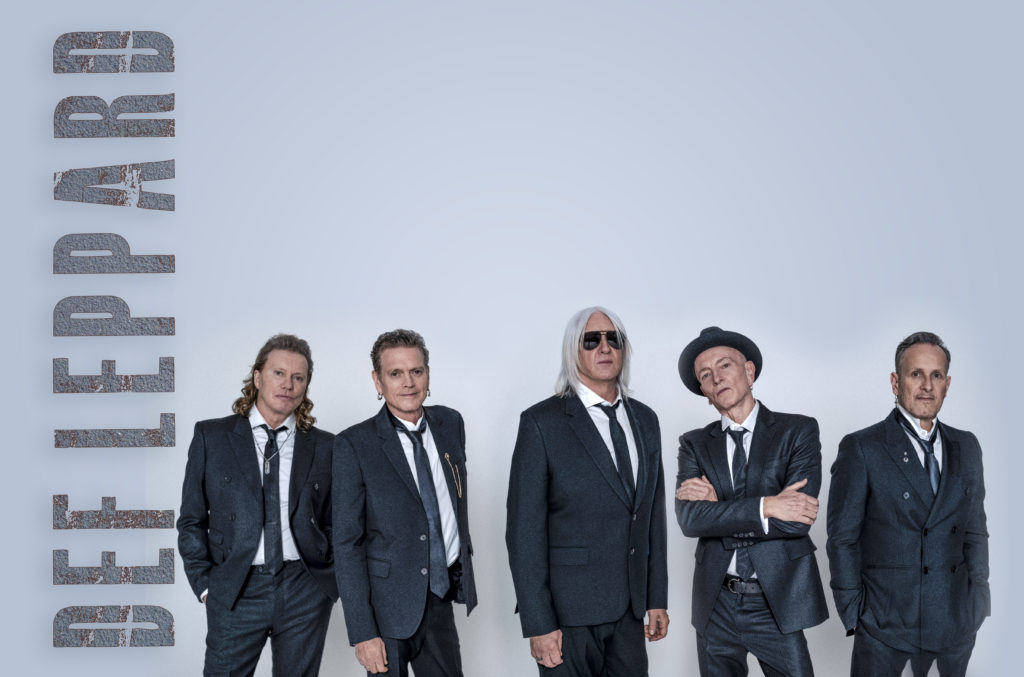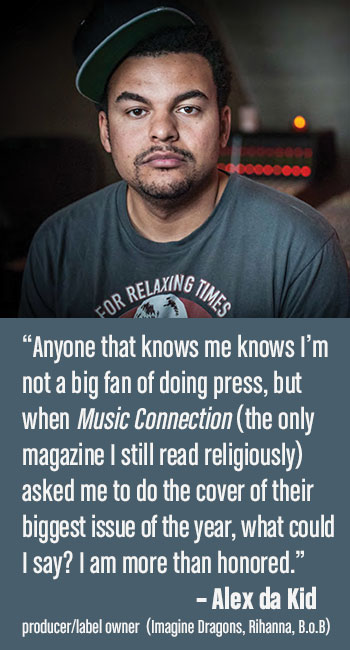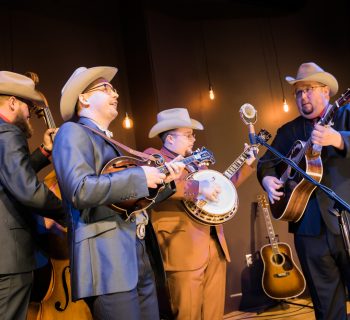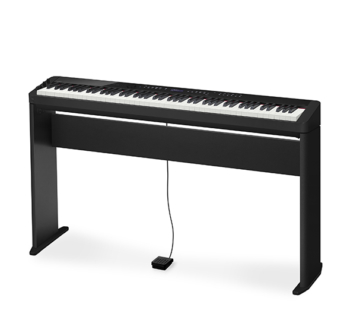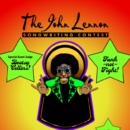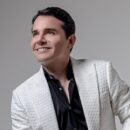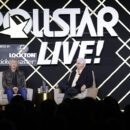The significance of being huddled alongside each other in chairs at London’s Savoy Hotel is not lost on Def Leppard’s Joe Elliott, Phil Collen and Rick Savage. Like so many others—people, let alone rock groups—they spent the better part of two years apart from each other, the five band members living in three different countries, due to pandemic lockdowns. “There are a lot of Zooms, some phone calls—sometimes technology can be your friend,” Elliott noted during a 2021 conversation. Def Leppard kept in contact, in other words—and, more importantly, stayed creative.
The multi-platinum quintet, which this year celebrates the 45th anniversary of its formation in Sheffield, England, wrote and recorded its 12th album, Diamond Star Halos, remotely, trading files and knitted together by longtime engineer/co-producer Ronan McHugh, including contributions from Alison Krauss and Mike Garson on two tracks each. The diverse 15-song set covers a lot of ground, from proto arena anthems such as the glammy, T. Rexish first single “Kick,” “Fire It Up” and “U Want Mi” to the Americana flavor of the Krauss tracks “This Guitar” and “Lifeless,” and moody, textured pieces like “Liquid Dust,” and the album-closing “From Here to Eternity.”
The album has actually been wrapped for a year, held back until Def Leppard could be on the road once again, which it will be starting June 16 on the twice-delayed The Stadium Tour with Mötley Crüe, Poison and Joan Jett & the Blackhearts. Back in active duty, Def Leppard is feeling some long-awaited euphoria again, and hoping a little, er, hysteria will follow...
Music Connection: When you realize it’s been 45 years of being Def Leppard, does it feel like it’s been that long—or 45 minutes? Or 450 years?
Joe Elliott: I don’t think we expected to get as far as 1983. When we formed in ‘77, Led Zeppelin was still together, the Beatles were only seven years gone, the Stones were only 15 years old and the Who were maybe 13 years old or something like that. The only thing that had been around 20 years or so would’ve been a solo artist. And you don’t see headlines like, “Frank Sinatra Splits!,” y’know? So it’s just been a forward momentum thing, and then someone tells you it’s been 45 years and you’re like, “Oh? Really?!”
Phil Collen: Someone has to tell you about it. It’s not something where we go, “Oh, guess what? It’s gonna be 40!” or 45 or whatever. We’re so busy doing other things, so those things are surprising us that way. It’s kind of neat.
MC: It’s been an eventful history. You’ve had members quit, die, get sick or injured. What keeps this going?
Collen: We haven’t achieved what we set out to do, and it’s to be kind of what we’re doing now. This is exactly what we want, and this is the stuff we want to do—an album like this, a tour like this, this frame of mind, all these things together. That’s what you want to achieve. Even with, like, massive albums, two Diamond award albums, the Rock & Roll Hall of Fame, it’s still not enough.
Rick Savage: We’re also still excited, as well. We’re excited to write new songs. We’re excited to record them. We’re always excited to go back on tour. We still have that very young enthusiasm that you have when you’re a teenager. Everything’s still great, and we still feel that we’ve got places to go that are valid and we can get better and bigger and just keep going.
Elliott: We’ve always said that what we’ve got to try and achieve before we kick it all in the head or we’re gone is to be bracketed among the greats: Lennon-McCartney, Jagger-Richards, Ray Davies, Pete Townshend. We probably never will, but we’re never gonna stop trying. We’re not interested in trying to be some second division, “Oh, that’ll do” kind of thing. We’re just gonna try our best and keep going for it.
Collen: The singing gets better, the playing gets better, the songwriting...it’s still growing in quite a vast, speedy way. That’s so exciting, so you don’t want to put the kibosh on it. You want to keep that going. The wheels are nowhere near falling off. They’re actually well-oiled and speeding up!
MC: Since your last album in 2015 you’ve put together a greatest hits collection and four archival box sets. What kind of longview perspective did you get about the group from that kind of immersion in the past?
Elliott: Our true mission was always to follow on the tailcoats, if you like, of all our great British pop-rock that came out in the ‘70s. Bowie, Bolan, Mott, Queen, Slade, Sweet—that’s where our three-minute pop-rock songs like “Photograph” and “Rock of Ages” came from. We’re always getting roped into either the L.A. hair metal scene or the (New Wave of British Heavy Metal), but it’s not like we’re channeling (Black) Sabbath all the time. We wanted to do the harmonies and the melodies. We’re happy to be called a hybrid of AC/DC and Queen.
MC: Diamond Star Halos certainly draws from that hybrid, and beyond. You were kind of coy about what was coming until you actually announced it in March.
Elliott: Yeah, there were people who were like, “What are you up to?” and I really don’t like telling lies to people. So I said we’d been doing a lot of writing, which was true. I just didn’t finish it off with “and some recording as well...” We’ve watched how some people like to put a camera in their studio and broadcast on their website their daily recording sessions, so by the time the record finishes everybody already knows what it sounds like, so there’s no impact. We wanted to keep it nice and quiet, like Bowie did his last couple of records. Then, boom, big announcement, like, “Omigod, where’d THAT come from?”
Collen: And the mystique, like back in the day when Zeppelin or Bowie or the Stones put something out. It made it an event. It made it something special. And with Covid and the tour getting pushed back, it made the album more special because of that.
Elliott: Had we done the tour when we were supposed to (in 2020), we’d have been doing the tour with no new music. Now we’re doing it with a new album to promote, which puts a total different slant on it. I think the fact we’re going out there refreshed and energized by new music that we can incorporate into the show, which we wouldn’t have been able to do in 2020, is going to make a huge difference in the way we present ourselves.
MC: How’d you like recording remotely?
Collen: I think it’s the best thing we’ve ever done. There was so much more energy by not having to go to a studio or a situation where you’re always waiting while someone else is recording their part. That stops creative flow and expression. With this, everyone could do their thing; I’d be in California and Joe and Sav would be in England and Ireland. I’d finish something, send it to Joe, he’d get it, put some stuff on it and we’d just be back and forth. I’d wake up in the morning and there’d be something in my inbox.
Elliott: Everybody was at home, so you didn’t have to work on it constantly or be waiting around in a hotel room in a foreign country, waiting to do your bit. You could get on with doing other stuff, and when we were working we could concentrate wholly on the record. It was a leisurely way of recording.
Savage: There was such a forward momentum by doing it this way. There was somebody working on the record any time of the day.
Elliott: It was joyful to do. As Sav says, at any one time there’s possibly four songs getting worked on at once. When you finish your bits you just sent them to Ronan, and we had this kind of central collection program called Bouncebox where you got the songs together and we could A-B different mixes and post your opinion and it goes to everybody to read and the communication lines are actually wider than they would have been if you sat next to each other.
Collen: We definitely don’t want to go back to whatever that standard way was that we did before. This is so much better.
MC: You originally planned to make the album in that “standard” way, right?
Elliott: We were originally gonna get together at my studio in Dublin, physically. Literally the day they were due to fly in was lockdown, so we canceled all the flights and there was this kind of rushed phone call of, “Okay, now what?” and we made this game plan of, “Let’s try it remotely.” We had seven songs to be getting on with—”This Guitar” dated back 17 years, even. And we just kept on writing and recording.
The big difference was, pre-pandemic, we may have gone, “Well, let’s hear these songs before we make any decisions,” but now we were just instantly open to, “Whatever it is we’ll do it and then make a decision later about whether the songs are up to scratch or not. So we just kept writing and writing and writing and we ended up with 14 finished songs. The album was finished and Phil called and said, “I’ve got another,” so it became a 15-song album.
Elliott: “Kick.” Phil rang me up, and because there was no delivery date, there was no record deal yet, I said, “Okay, send me an MP3. We’ve got to go band-wide with it,” and everybody loved it. It’s a stadium anthem, and we were about to go into stadiums, so...”Yeah!”
Collen: It also represented where we were at, as well. It’s got that glam rock feel, that hand-clap groove, big vocals. It was just a no-brainer. It was not only “it’s got to be on the album,” it’s also got to be the first single.
Elliott: Sav was the first one to comment, “OMG. ‘Sugar,’ anyone?” He wasn’t comparing one song to the other. He was comparing the situation. Back in late ‘86 “Sugar” (aka “Pour Some Sugar On Me”) was the last song written for Hysteria. We were already done. It was an 11-track record, finished, and then the idea of “Sugar” came along and it became arguably the most important song on the record, if not our entire career, eventually. So with (“Kick”) it was like the same kind of feeling, that this could be a very important song for us, and it’s come right at the end when we weren’t expecting it. It’s a nice little gift, totally unplanned.
MC: Speaking of the glam aspect, there’s a lot of T. Rex in “Kick,” and in the album title. How did that come about?
Collen: It’s got a ‘70s thing about it. One of the words we use to describe the era of when we were all baptized into music is “it’s very hubcap diamond star halo,” which is a Marc Bolan lyric from “Get It On (Bang a Gong).” We used that to describe something, and as we were doing the record it became apparent that era and that feeling from when we first got introduced to [music] was readily apparent on this album as well—the vibe, the lyrics, the look, everything. So it just seemed like the obvious phrase. That’s what we call the era, so let’s call the album that, as well.
MC: And yet here’s Alison Krauss on a Def Leppard album. How’d that happen?
Elliott: Pretty simple, really—she’s on the other end of the phone. We’ve known Alison for a long time. Other than hearing of her and knowing she was an amazing artist and angel, really, she wanted to interview me for Q magazine back in 1996, for the Slang album. She wanted to pick our brains regarding our harmonies. Over the last 20, 30 years we’ve had people coming by, tipping their hat to us—Keith Urban, Faith Hill, Tim McGraw, obviously Taylor Swift and Alison. By coincidence, our manager was talking to her manager-lawyer about some other stuff and just happened to mention these two songs. When we saw how these two songs, “This Guitar” and “Lifeless,” had a bit of country-rock to them it just kind of became obvious, “Why don’t we ask Alison if she wants to add something?” I sent her a text and she was like, “Yeah!” She got back to us, going, “I can’t pick one. I love ‘em both so much,” so we just said, “Okay, why don’t you do them both?” So she did, and what she delivered was amazing.
MC: What was it that intrigued her about Def Leppard’s harmonies?
Elliott: Most people don’t realize this, but the harmonies on the past albums that we’ve done with Mutt Lange, they’re kind of tinged with a little bit of country, sometimes. I’m guessing when a country artist has accidentally heard a Def Leppard song, walking past the telly and MTV’s on or they hear it on the radio, they’ve gone, “Wait a minute, that’s a country harmony!,” which is why over the last 20, 30 years we’ve had [country artists] coming by, tipping their hat to us.
MC: The other big guest is Mike Garson, who worked so closely with David Bowie for so much of his career. A natural fit?
Elliott: (laughs) Who would’ve thought the avant garde jazz fusion notebag that is Mike Garson would have fit nicely on a Def Leppard record? Nobody, really—except we did. I’ve worked with Mike on and off the last two or three years on a bunch of Bowie stuff, live and virtual. So, I’ve got a pretty good relationship with Mike, and with these songs I wrote on the piano (“Angels (Can’t Help you Now),” “Goodbye For Good This Time”) with my very bleaky, funky, rudimentary playing, it got to the point where I was, “Okay, who’s gonna REALLY play these?” And because he was on the forefront of my mind, it was “Why don’t we get Garson to do it?” He lived with the songs for a couple of hours and literally mapped out a rough that we loved and then sent us the (finished) track a couple weeks later and it was beautiful, it really was.
MC: What are you anticipating for The Stadium Tour now that it seems like it’s really going to happen this summer.
Collen: Even more spectacular, really. We feel like we’re moving into a different league. There’s a lot of bands who have stopped touring, stopped performing or lost interest. We’re the complete opposite. We’re rarin’ to go, so everything about it is gonna be bigger. We’ve got this album, and we’re a really “live” live band, so we can’t wait to get out there and prove it.
Savage: It’s a brilliant package. It’s Mötley Crüe, the real guys. Same with Poison. Those are the guys who formed the bands, so you can’t get better than that. It’s genuine. It’s the biggest tour that Def Leppard will have done in our career, and after 40 years it’s just a fantastic achievement to be able to do that.
Elliott: And let’s not forget Joan Jett as well, who’s a complete ball of energy. We’ve basically been looking at this thing since it was announced, as it’s like taking a festival on the road. It’s a four-band festival, and we’ve always been into the idea of everything we do being an event. We’ve toured with some amazing bands...but this is a big deal. All those three artists out there with us makes it a special tour.
MC: Also on the special tip, any plans to acknowledge Hysteria’s 35th this year?
Elliott: Y’know, we did 25 and 30. So we’ve made a pact that we’re not going to indulge in anything Hysteria until it gets to 40, and then we’ll open that door again. Our main focus is now and the future. The past is great and we’ll embrace it and talk about it at very special occasions, but the focus right now is what we’re doing—promoting the new record, telling everybody about it, hoping everyone loves it as much as we do, and getting on this tour to help shoot this record out there. We’ll celebrate the past as well as the present, which is going to be our future, we hope.
Quick Facts
Forget the gold rush; Def Leppard charged out of Sheffield, England, and went on a platinum parade during the 1980s and early 1990s. The group notched five consecutive platinum or better studio albums, trailed by a pair of compilations that also broke the million mark. It’s reached those heights only once since—with 2005’s platinum Rock of Ages: The Definitive Collection—but it remains a streak that’s not only impressive, but keeps us excited for whenever the Leps lay another new album on us...
•On Through the Night, 1980, platinum
• High ‘n’ Dry, 1981, double platinum
• Pyromania, 1983, Diamond
• Hysteria, 1987, Diamond
• Adrenalize, 1992, triple platinum
• Retro Active, 1993, platinum
•Vault: Def Leppard Greatest Hits (1980-1995), 1995, quadruple platinum
Contact Nina Lee, [email protected]
Photos by Anton Corbijn

